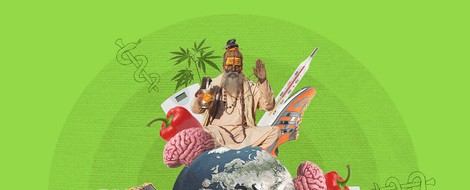Your podcast discovery platform
Curious minds select the most fascinating podcasts from around the world. Discover hand-piqd audio recommendations on your favorite topics.

piqer for: Health and Sanity Global finds
I was born in 1987 in Bucharest. I studied Psychology and Educational Sciences at the University of Bucharest. For two years I worked in a psychotherapy practice, dealing with gambling addicts. I'm an independent reporter, writing and doing video reportages mostly about social and political issues. I am currently based in Jena.
The Struggle For Meaningless Sex
Do students today have more sex than their parents did when they were young? What has changed in the way college students relate to sex nowadays? What’s the impact of the hookup culture on the students’ emotional lives? Is this culture empowering for women or is it demeaning?
The questions above and many others are discussed in the Hidden Brain’s Valentine’s Day episode. The show’s guest is Lisa Wade, a sociologist at Occidental College, who spent five years investigating hookup culture on campuses for her book “American Hookup: The New Culture of Sex on Campus”. To go back to the first question: The answer is no, students today don’t necessarily have more sex than their parents did back in the day.
But, Lisa Wade argues, the difference is that nowadays young people make a clear distinction between meaningless and meaningful sex. And what’s more, students go out of their way to prove that they want the former. It’s like a contest of who cares less out there because, as far as the hookup culture goes, if you show signs of having feelings for someone or, God forbid, wanting a relationship, you’re tagged by the college community as desperate. And being perceived as desperate is even more serious than being seen as prudish. It really makes you think about the days when “slut” was the boogeyman for girls.
Lisa Wade also talks about the very strict social rules of hookup, the challenging of gender roles, feminism, rape culture and how people in minorities relate to the hookup culture. Throughout the show we can hear testimonies of some of the students Wade interviewed for her book, and I think this one points out perfectly the striving for emotional detachment and the avoidance of intimacy: “I think it feels bad to be used, but I think the alternative is that nobody wants to use you and I think that that’s worse.”
